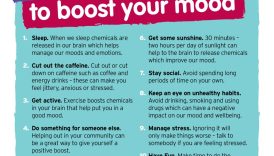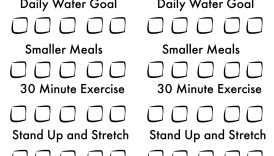Empower Yourself: Taking Control of Your Health and Wellbeing

Understanding the Importance of Self-Empowerment
Self-empowerment is more than just a buzzword; it’s a dynamic process that enables individuals to take control of their lives, make informed decisions, and drive their own success. When one empowers oneself, barriers that seemed insurmountable often dissolve into opportunities for growth. For instance, consider a woman named Sarah, who recently decided to change her career path. After years of feeling trapped in a role that didn’t fulfill her, she took the plunge and enrolled in a course to pursue her passion for graphic design. By setting her intentions and taking actionable steps, she redefined her life’s narrative. This kind of empowerment fosters self-confidence and resilience, helping individuals tackle challenges head-on. In essence, self-empowerment involves various components, including:
- Empower Yourself: Taking Control of Your Health and Wellbeing
- Understanding the Importance of Self-Empowerment
- The Connection Between Health and Wellbeing
- Setting Goals for Yourself
- Identifying Areas for Improvement
- Creating SMART Goals
- Developing Healthy Habits
- Importance of Nutrition and Exercise
- Prioritizing Sleep and Stress Management
- Seeking Support
- Building a Strong Support System
- Utilizing Professional Resources
- Mindfulness and Self-Care Practices
- Incorporating Mindfulness into Your Daily Routine
- Self-Care Strategies for Mental and Emotional Wellbeing
- Acknowledgment of Strengths: Recognizing personal skills and capabilities.
- Taking Initiative: Being proactive rather than reactive in life’s situations.
- Setting Boundaries: Learning to say no to things that don’t serve one’s goals.
The Connection Between Health and Wellbeing
In today’s fast-paced world, the significance of health and wellbeing cannot be overstated. Physical health acts as the foundation upon which emotional and mental wellbeing are built. When an individual engages in healthy practices—such as maintaining a balanced diet, exercising regularly, and managing stress—these contribute significantly to both their physical health and overall sense of wellbeing. The relationship between health and wellbeing manifests in several ways:
- Improved Mood: Regular exercise releases endorphins, chemicals in the brain that act as natural painkillers and mood elevators.
- Enhanced Resilience: Good health equips an individual to cope better with stress and challenges.
- Sustainable Energy Levels: A nutritious diet fuels the body, ensuring higher energy levels throughout the day.
To illustrate, think about how a simple morning routine—like enjoying a nutritious breakfast and taking a brisk walk—can set a positive tone for the day. These small but impactful choices do not just improve physical health but also boost confidence and motivation. Overall, understanding self-empowerment and its links to health and wellbeing lays the groundwork for setting constructive goals and making meaningful lifestyle changes.
Setting Goals for Yourself
Identifying Areas for Improvement
Setting goals is a crucial step in self-empowerment and personal growth. However, before one can effectively set goals, it’s essential to identify areas for improvement. This process requires introspection, honesty, and a willingness to embrace change. To begin, individuals can conduct a self-assessment by reflecting on different aspects of their lives, such as:
- Career: Are there skills or qualifications that could elevate your career?
- Health: Are there lifestyle choices that could improve your physical and mental health?
- Relationships: Are there communication habits that could enhance personal connections?
- Personal Development: Are there books, courses, or experiences you’ve been longing to pursue?
Let’s take the example of John, who realized he was often overwhelmed and stressed. After some reflection, he identified that his work-life balance needed improvement. Recognizing this area was the first step towards setting actionable goals.
Creating SMART Goals
Once you’ve identified areas for improvement, the next step is to create SMART goals. This framework ensures that goals are Specific, Measurable, Achievable, Relevant, and Time-bound. Here’s a breakdown:
- Specific: Clearly define what you want to accomplish. For instance, instead of saying, “I want to get fit,” say, “I will run 3 times a week for 30 minutes each session.”
- Measurable: Establish criteria to track your progress. For example, “I will lose 5 pounds in two months,” provides a tangible measure.
- Achievable: Set realistic goals that challenge you but can still be accomplished. Setting a goal to run a marathon without prior training may lead to frustration.
- Relevant: Your goals should align with your values and long-term objectives. Ensure that your goal boosts your overall health or career aspirations.
- Time-bound: Assign a timeline to keep yourself accountable. Instead of a vague “someday,” setting a deadline like “by the end of this month” adds urgency.
Let’s summarize this in a simple table:
| SMART Criterion | Example Goal |
|---|---|
| Specific | Run 3 times a week for 30 minutes |
| Measurable | Lose 5 pounds in two months |
| Achievable | Run a 5K next month |
| Relevant | Goals align with health aspirations |
| Time-bound | Complete the goal by the end of month |
By adopting the SMART framework, individuals like Sarah can effectively turn dreams into actionable plans that lead to growth and self-empowerment. Setting well-defined goals not only provides a roadmap but also fosters motivation, as measurable progress can be celebrated along the way.
Developing Healthy Habits
Importance of Nutrition and Exercise
As individuals embark on the journey of setting goals, developing healthy habits becomes a key component of personal empowerment and wellbeing. Among the most impactful habits are proper nutrition and regular exercise. These elements not only improve physical health but also enhance emotional and mental wellbeing. Nutrition plays a pivotal role in how individuals feel and function daily. A well-balanced diet consisting of fruits, vegetables, whole grains, and lean proteins can lead to higher energy levels and improved focus. Here are some practical tips for making informed dietary choices:
- Plan Meals: Take time to plan weekly meals that emphasize healthy choices.
- Stay Hydrated: Drinking enough water is vital for overall health.
- Read Labels: Understanding nutritional information can help in making healthier options.
For example, Emily, a busy professional, noticed that when she packed her lunch with nutritious salads and whole grains instead of fast food, her afternoon productivity soared. Fueling the body with the right nutrients is tantamount to fueling a car with the right fuel—it simply runs better! Exercise complements good nutrition, serving as an essential pillar of health. Regular physical activity can reduce stress, prevent chronic diseases, and improve mood. To incorporate exercise seamlessly into one’s lifestyle, consider:
- Finding Activities You Enjoy: Whether it’s dancing, hiking, or yoga, enjoyment makes consistency easier.
- Setting a Routine: Schedule workouts like appointments to prioritize them.
- Starting Small: Aim for small, achievable goals, like a 10-minute daily walk, and gradually increase intensity.
Prioritizing Sleep and Stress Management
While good nutrition and exercise are vital, it’s also crucial not to overlook sleep and stress management. The dual forces of adequate rest and stress alleviation greatly influence one’s ability to thrive. Research continually shows that adults need between 7-9 hours of sleep per night for optimal health. Sleep deprivation can lead to irritability, lack of focus, and even weight gain. Here’s how to prioritize sleep:
- Establish a Sleep Schedule: Going to bed and waking up at the same time every day can regulate your body’s internal clock.
- Create a Restful Environment: Make your bedroom conducive to sleep—dark, cool, and quiet.
Similarly, stress management strategies can include:
- Mindfulness Practices: Activities like meditation or deep-breathing exercises can foster calm.
- Regular Breaks: Taking brief but regular breaks during tasks can rejuvenate the mind, especially during a hectic workday.
In summary, developing healthy habits involving nutrition, exercise, sleep, and stress management creates a holistic foundation for optimal health and energetic living. These habits pave the way for personal empowerment and ultimately lead to a more fulfilling life.
Seeking Support
Building a Strong Support System
As individuals work toward their goals and develop healthy habits, seeking support becomes an essential element of achieving lasting change. A strong support system not only provides encouragement but also accountability, allowing one to navigate challenges with resilience. To cultivate a reliable network, consider surrounding yourself with friends, family, or peers who inspire positivity and growth. Here are some effective strategies for building that support system:
- Communicate Openly: Share your goals and challenges with those you trust. Some friends may not be aware of what you’re striving for, and they could provide encouragement or advice if informed.
- Join Groups or Clubs: Engaging in communities with similar interests—be it for fitness, hobbies, or self-improvement—can foster new connections. For instance, joining a running club not only enhances your exercise routine but also builds camaraderie with fellow runners.
- Be a Supportive Friend: Often, support is reciprocal. By being there for others, you establish a bond that encourages mutual accountability and motivation.
Take the example of Mark, who found that sharing his fitness goals with a close-knit group of friends helped him stick to his exercise regime. Through check-ins and shared workout sessions, they not only held each other accountable but also motivated one another to keep progressing.
Utilizing Professional Resources
In addition to personal support, leveraging professional resources can significantly enhance one’s journey toward self-empowerment and wellness. Professionals, whether they’re coaches, therapists, or nutritionists, bring expertise and tailored guidance that can help individuals break through barriers. Consider the following types of professional support:
- Health Coaches: These experts can provide personalized fitness plans, nutrition advice, and motivation to keep you on track.
- Therapists or Counselors: Mental health professionals can help address underlying issues related to stress, anxiety, or self-esteem, providing valuable techniques for coping and growth.
- Online Resources and Apps: Numerous digital tools can support personal development. Fitness apps, meditation guides, and nutrition trackers offer structure and motivation at your fingertips.
For instance, Jane decided to hire a nutritionist after struggling to balance her eating habits. The tailored meal plans and regular consultations not only equipped her with the knowledge she needed but also kept her motivated to adhere to her health goals. In summary, seeking support through a solid network of friends and professionals enriches the journey of personal growth. Whether through personal connections or professional guidance, having a robust support system can significantly enhance resilience and success in achieving one’s goals.
Mindfulness and Self-Care Practices
Incorporating Mindfulness into Your Daily Routine
As individuals progress on their journey of personal growth and empowerment, the practices of mindfulness and self-care play a crucial role in maintaining balance and enhancing overall wellbeing. Incorporating mindfulness into your daily routine can significantly reduce stress and improve focus, empowering you to navigate daily challenges with clarity. One effective way to embrace mindfulness is through mindful breathing exercises. Here’s how you can seamlessly integrate this practice into your life:
- Start with a Few Minutes: Dedicate just five minutes a day to focus on your breath. Choose a quiet space, sit comfortably, and inhale deeply through your nose, then exhale slowly through your mouth.
- Anchor Your Attention: Whenever your mind wanders, gently redirect your focus back to your breath. This act of returning your attention builds mindfulness muscle over time.
- Make It a Routine: Consider anchoring your mindful breathing to an existing habit, like when you first wake up or just before going to bed. This can solidify the practice within your daily life.
Maria, a working mom, found that incorporating mindful moments during her coffee breaks significantly improved her stress levels. By taking a few minutes to pause, breathe, and appreciate her surroundings, she returned to work with renewed energy and clarity.
Self-Care Strategies for Mental and Emotional Wellbeing
To complement mindfulness, adopting self-care strategies is essential for nurturing mental and emotional wellbeing. Self-care encompasses various practices that can replenish your energy and cultivate a positive mindset. Consider these practical self-care strategies:
- Engage in Creative Outlets: Whether it’s painting, writing, or playing an instrument, expressing creativity fosters emotional healing and joy.
- Stay Physically Active: Incorporating exercise that you enjoy—like dancing, swimming, or cycling—releases endorphins, promoting a happier state of mind.
- Establish Boundaries: It’s important to recognize your limits. Saying “no” to additional responsibilities when feeling overwhelmed can free up space for self-care.
- Practice Gratitude: Keep a gratitude journal where you jot down things you’re thankful for each day. This can shift your focus from what’s lacking to appreciating the abundance in your life.
For example, Jake, a college student, started a weekly ritual of writing down three things he was grateful for before bed. This simple habit allowed him to end his day on a positive note, fostering a sense of appreciation and contentment. In summary, integrating mindfulness into your daily routine and embracing self-care strategies contribute significantly to emotional and mental wellbeing. By prioritizing these practices, individuals not only enhance their resilience and happiness but also create a supportive environment conducive to personal growth and empowerment.





